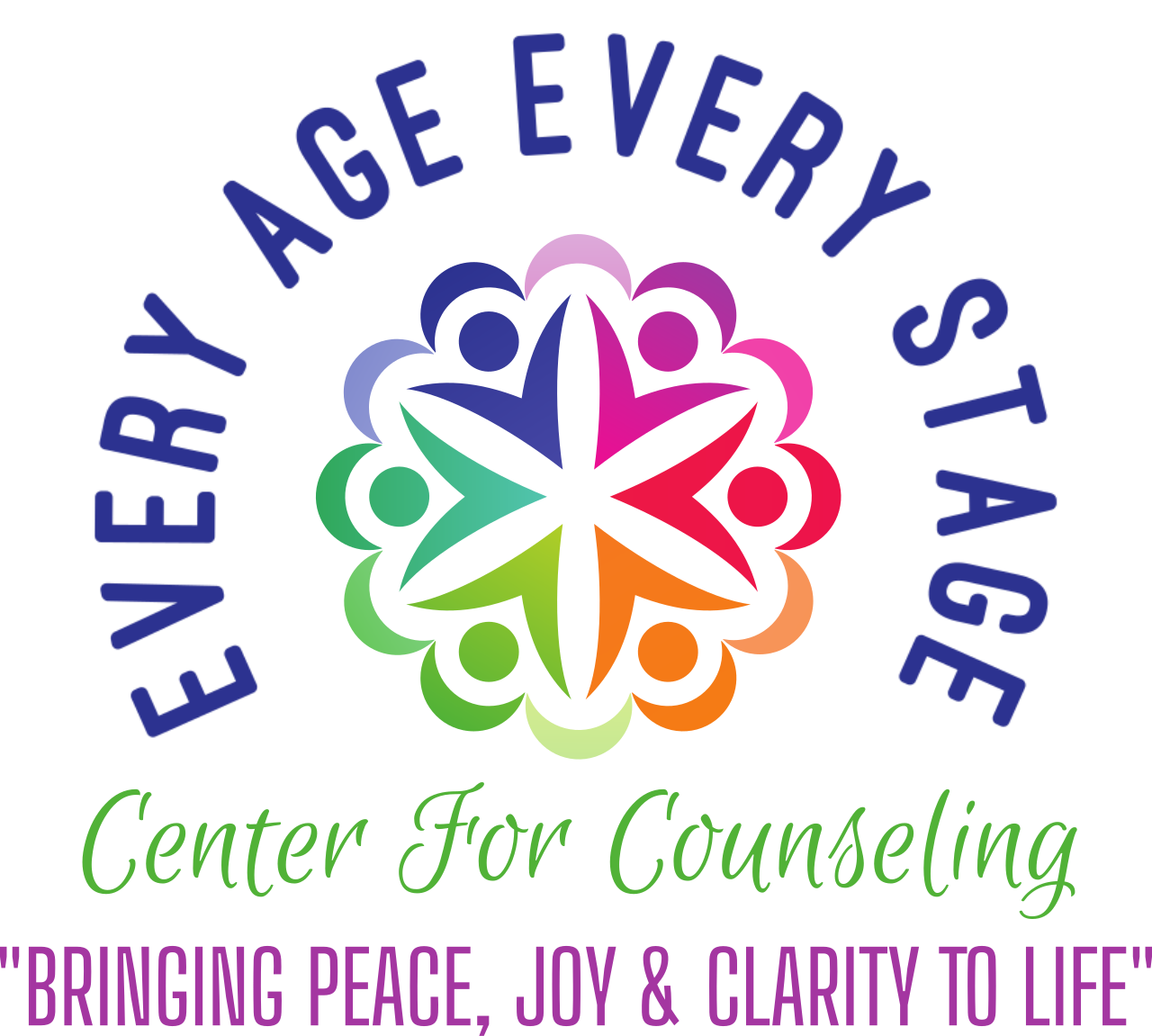You will feel valued, supported, and safe, the minute you step through our doors. We are here to guide you with empathy and compassion as you embark on your healing journey, no matter what you've experienced!
We'll walk alongside you, uplift and encourage you, every step of the way!
Strike the set
Making Peace with the Past
"Striking the Set" is a term used in theater and film production. It means to take down or remove the set pieces, props, and other materials used for a particular production after the final performance has taken place. With the help of a crew, the set is dismantled, stored, and returned to its original state, ready to be prepared for the next production or event.
"Striking the Set" can also be used as a metaphor for the process of reevaluating and dismantling one's core beliefs and mental patterns in order to build new, healthier ones. In this context, it involves identifying and letting go of old patterns of thought and behavior that are no longer serving you and actively working to replace them with new ones that are more aligned with your values and goals.
At Every Age Every Stage, we have specific tools for you to use while you "Strike the Set" in your own life. A licensed therapist can help you navigate this process as you begin making peace with your past.
Learn more about "Striking the Set"
here
Engage in the stage
Finding Joy in the Present
Learning to accept your present reality with compassion for yourself and others is vital no matter what the age or stage of life you are currently in. Focusing on what is in front of you can be difficult at times, but doing so will ultimately lead to finding joy in the present.
At Every Age Every Stage, we use Erik Erikson's Eight Stages of Development as our model and guide. Erikson’s theory consists of eight stages that individuals go through across the lifespan. Each stage involves a psychological crisis or challenge that must be resolved in order for the individual to develop a healthy sense of self and move on to the next stage.
Let us help you in this journey as you discover and learn to master each of these eight stages. Doing so will help you find joy as you engage in your stage of your life.
Learn more about the Eight Stages of Development here.
Create a scene
Seeking Clarity for Your Future
As William Shakespeare once said, “All the world’s a stage, and all the men and women merely players; they have their exits and their entrances; and one man in his time plays many parts.” Creating the scene for the many parts of your life involves intentionally creating and nurturing the scenes of your life to promote personal growth, fulfillment, and happiness.
At Every Age Every Stage, we have identified 16 of the most common scenes of our lives. These scenes are: Career, Community, Educational, Emotional, Family/Current, Family/Extended, Financial, Health & Fitness, Hobbies & Leisure, House & Home, Intellectual, Love & Intimacy, Parenting, Personal Development, Social, And Spiritual.
Life is a journey, not a destination. It takes time, effort, and dedication to create the life you want. At times it may be painful, but with consistent effort and a clear vision, you can achieve your goals and live a fulfilling and meaningful life. We’re here to help you create the scenes just the way you want them.
Learn more about Creating the Scene here

"Therapists share our pain
and touch our wounds with a
gentle and tender hand"
- Henri J.M. Nouwen

Life is a journey! along the way we all encounter a variety of challenges that shape who we are. At Every Age Every Stage, Center for Counseling, we understand the importance of individual needs and the transformative power of therapy.
Our team of compassionate and skilled therapists are here to guide you on a path towards healing, helping you find peace, joy, and clarity in life as you heal from the difficulties, traumas, abuse and loss that may have been part of your life experience.
Step into our center and find solace in a safe and nurturing space, where you can freely express yourself without judgment. Our therapists are here to listen, support, and empower you every step of the way as you embark on a journey of self-discovery and growth.
Together, we'll explore the depths of your past, releasing old burdens, reframing core beliefs, and cultivating new perspectives. Through evidence-based therapies, mindfulness practices, and inner child work, you'll reclaim your authentic self and find the resilience to thrive.
Whether you're seeking healing from childhood traumas, navigating life transitions, or seeking personal growth, Every Age Every Stage, Center for Counseling is here to support you.
Every Age Every Stage, Center for Counseling,
Bringing Peace, Joy & Clarity to Life!
Schedule a Free consultation today!
Therapy approaches
There are many different therapy approaches because there is no one-size-fits-all solution when it comes to mental health. Each person's experiences, personality, and challenges are unique. therefore, different therapy approaches are necessary to address their individual needs.
It's important to note that finding the right therapy approach can take time and may require trying different approaches until you find the one that works best for you. It's also common for therapists to integrate multiple therapy approaches into their treatment plans, depending on the client's needs and goals.
the goal of therapy is to help individuals improve their mental health and well-being, and the variety of therapy approaches available allows for more personalized and effective treatment.
The therapy approaches listed to the right are some of the most widely used therapeutic approaches. We invite you to read through each approach to determine which approach may be most helpful to your individual needs.
How will therapy benefit me?
Therapy can benefit you in a variety of ways, depending on your individual needs and goals. Here are some of the potential benefits of therapy:
- Improved mental health: Therapy can help alleviate symptoms of mental health conditions such as anxiety, depression, and post-traumatic stress disorder (PTSD).
- Increased self-awareness: Therapy can help you gain a better understanding of yourself, your thoughts, emotions, and behaviors, which can lead to increased self-awareness and personal growth.
- Better coping skills: Therapy can help you learn new coping skills and strategies to deal with difficult emotions and situations.
- Improved relationships: Therapy can help you improve communication and resolve conflicts in your relationships, whether it's with family, friends, or romantic partners.
- Increased resilience: Therapy can help you build resilience by teaching you how to bounce back from setbacks and challenges.
- Enhanced self-esteem: Therapy can help you develop a more positive self-image and increase your self-esteem.
- Personal growth: Therapy can help you work towards personal growth and self-improvement, whether it's in your career, relationships, or other areas of your life.
working with a Licensed therapist will help you find peace, joy, and clarity, while developing new skills and strategies to help you navigate life's challenges and build a more fulfilling and satisfying life!
self care spices
SOCIAL
Social self-care is a vital part of your overall well-being that involves building and maintaining healthy relationships with others, including Friends, Family, Neighbors, work associates & etc.
Physical
Physical self-care is crucial for maintaining overall well-being. It involves taking care of your body through healthy habits and practices. This includes sleeping, drinking water, eating, being active, & seeking treatments.
INTIMATE
Intimate self-care involves taking care of one's inner circle, closest relationships. as well as your sexual needs. It is an important aspect of overall well-being and can help improve self-esteem, confidence, and overall happiness.
cerebral
Cerebral self-care involves engaging in activities that stimulate both the cognitive and creative parts of the mind. doing so can positively impact our overall health and well being.
EMOTIONAL
Emotional self-care is essential for maintaining good mental health and well-being. It involves taking care of your emotions and finding ways to regulate them effectively.
SPIRITUAL
Spiritual self-care is an important aspect of overall well-being that involves connecting with one's inner self, beliefs, values, goals, desires, and purpose.
CONTACT US
Thank you for being here. Please fill out the form and a member of our team will reach out to help.
